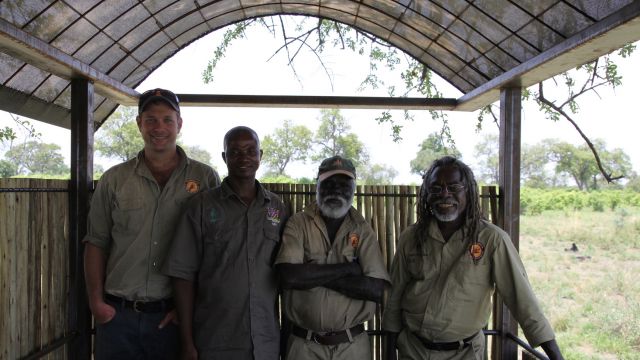African Fire Learning Exchange
-
- DATE / TIME:
- 2014•11•24 - 2014•12•03
- Location:
- Namibia
From 24 November – 3 December 2014 in Namibia, the United Nations University (UNU) Traditional Knowledge Initiative (TKI) co-hosted an African learning exchange in conjunction with the non-governmental organisation Integrated Rural Development and Nature Conservation (IRDNC).
The purpose of learning exchange field trip was to explore savanna burning practices, particularly in communal conservancies and the National Parks in the far north-east of Namibia, as well as Etosha National Park in the north-central part of the country. The history of burning and current fire strategy in this vast park, one of the largest savanna conservation areas in Africa was highlighted. Zambezi-Kanvango regions border on Angola, Botswana and Zambia. IRDNC, which pioneered community-based natural resource management in Namibia, also works in partnership with government, NGOs and neighbouring communities in these countries.
During the learning exchange, a small group including indigenous representatives, scientists and other fire management experts, travelled to areas in and around the Caprivi and Etosha National Parks, Namibia to learn about the local fire management and social context and exchange information about experience in Africa and Australia.
The learning exchange is an activity of the UNU TKI’s International Savanna Fire Management Initiative, supported by the Australian Government through its aid budget. The initiative aims to raise awareness globally of Australia’s experience in methodology based fire management and explore the feasibility of the approach as a tool for emissions reductions, biodiversity protection and creating sustainable livelihoods opportunities for indigenous and local communities in fire dependent landscapes globally.
Also see UNU’s Southern African Regional Workshop held in Swakopmund, Namibia from 4-5 December 2014.
-

